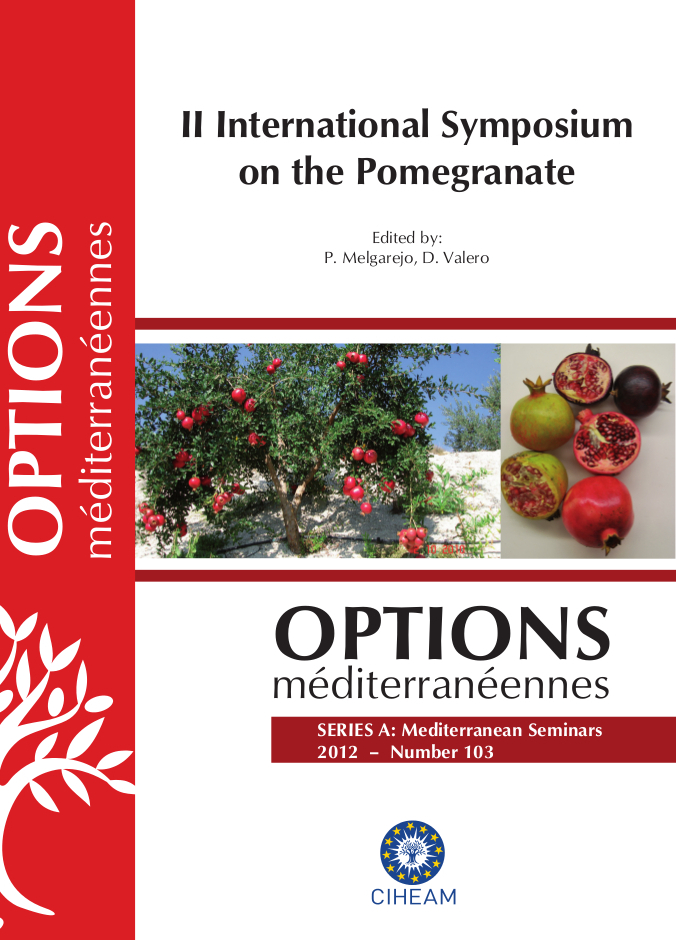| Article précédent | p. 133-135 | Article suivant |
Effect of chemicals on control of fruit cracking in pomegranate (Punica granatum L.) var. Ganesh
During drought period, strengthened tissue develops in xylem and phloem and loss their ability to divide and enlarge. If after a dry spell (April-May) water supply is increased the meristematic tissue quickly resumes growth but the strengthened tissue does not, and owing to differential growth rate, tissues ruptures appear. Hypertrophy of lenticels may be caused or promoted greatly by retarded transpiration accompanied by plentiful water supply to the regions of hypertrophy. Heavy summer rains (April-May) causes fruit cracking if the plants were previously under severe water stress, because the skin get hardened and the arils are filled-up with water. If 25% available soil moisture is maintained during summer, then fruit cracking will be less. Calcium is a cell binding material, and spraying of calcium chloride (1 kg/100 l water) or calcium ammonium nitrate (2 kg/100 l of water) reduces fruit cracking. Dry heat accomplished by dry hot wind at the time of fruit ripening in pomegranate was the main cause of cracking: during the rapid flesh growth, temperatures higher than 38ºC combined with less than 60% humidity favoured cracking. Sharp fluctuation in day and night temperatures coupled with heavy irrigation after dry spell also cause cracking. Nutrients like boron, zinc, calcium, copper, molybdenum manganese and potash are involve in physiological processes during fruit growth period, and theirs deficiencies cause cracking. Boron and copper help to increase the growth rate by stimulating enzymatic action in the peripheral tissue which otherwise could not be due to their inherent deficiency in the area. Boron application may probably help in translocation of sugars and synthesis of cell wall.
- [ Afficher ]
- [ Télécharger ]
- [ Exporter la citation ]
Vous pouvez télécharger la citation au format :
- [ Imprimer ]
-
Mots-clés
CALCIUM, ECLATEMENT DE FRUIT, HUMIDITE, SECHERESSE, SUBSTANCE NUTRITIVE MINERALE, TAUX DE CROISSANCE, TEMPERATURECiter cet article
Sheikh M.K., Manjula N. Effect of chemicals on control of fruit cracking in pomegranate (Punica granatum L.) var. Ganesh. In : Melgarejo P. (ed.), Valero D. (ed.). II International Symposium on the Pomegranate. Zaragoza : CIHEAM / Universidad Miguel Hernández, 2012. p. 133-135. (Options Méditerranéennes : Série A. Séminaires Méditerranéens; n. 103). 2. International Symposium on the Pomegranate, 2011/10/19-21, Madrid (Spain). http://om.ciheam.org/om/pdf/a103/00006921.pdf



